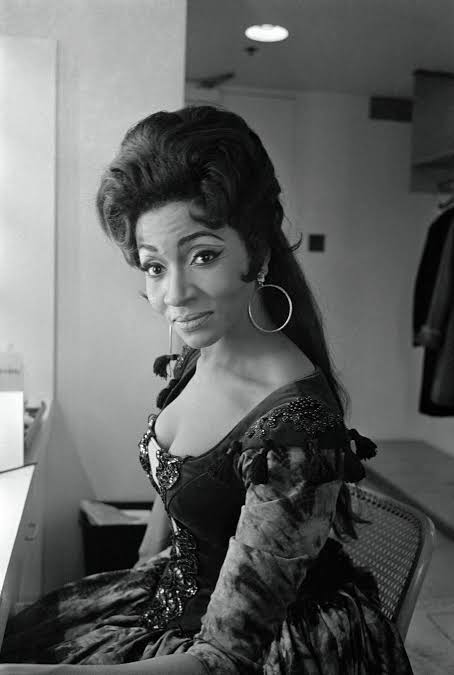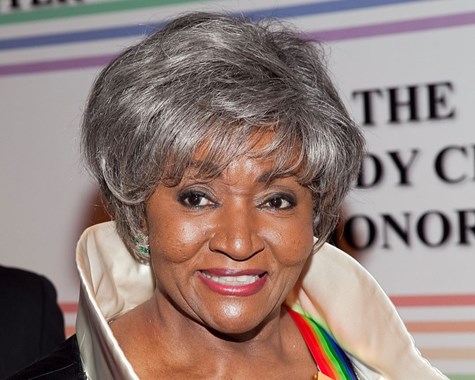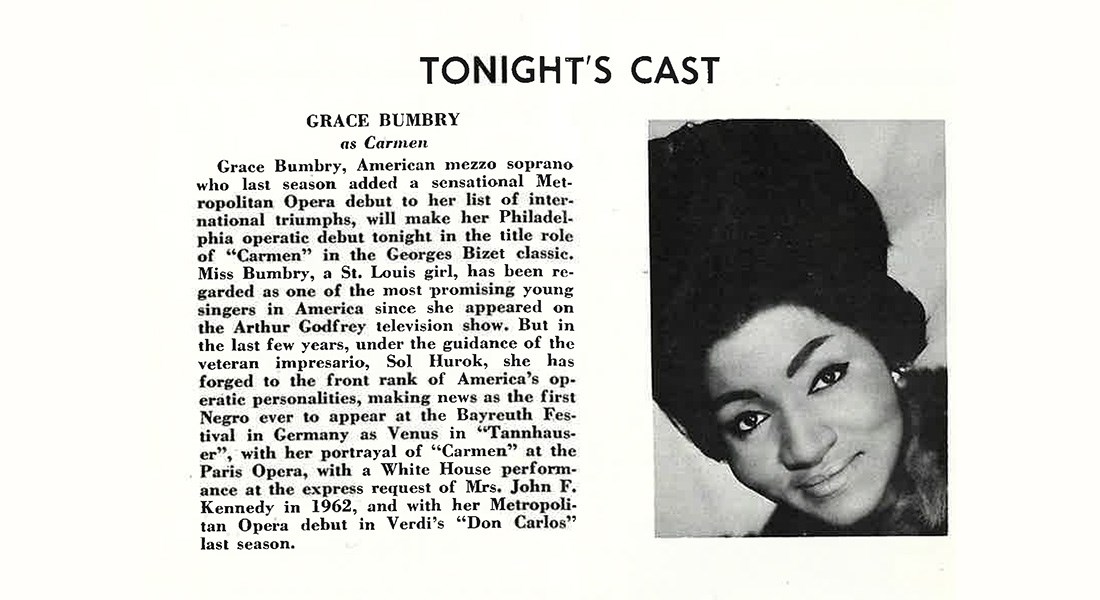Posted22 Jul 2025
- In
Grace Bumbry's impact on Opera
Opera Philadelphia is celebrating its 50th Anniversary throughout the 25/26 Season, and we'll be sharing a series of blog posts from that pay tribute to the incredible artists, works, and moments that make up the company's vast history. In this post, Community Initiatives intern Kimberly Carroll explores the legacy of Grace Bumbry.
Grace Bumbry (January 4, 1937 - May 7, 2023) was an American mezzo-soprano. She was best known for her distinctive, commanding voice. She is one of the most prevalent opera singers because she was the first Black woman to sing in many major houses and companies, including the Royal Opera House in 1963, Covent Garden in 1963, and The Metropolitan Opera in 1965. She broke many boundaries as an African American female opera vocalist, a role that was often denied to Black people, who rarely had a platform to see themselves on stage. With the success and validation Grace received in her career, none of it came without ridicule. Since she was an up-and-coming opera singer in the 1950s, many people questioned whether she was worthy of specific parts because she was a Black woman. But the beauty of Grace’s career is that she proved her critics wrong time and time again.
She made her opera debut in 1960 as Amneris in Aida at the Paris Opera. However, the first time she made history was a year later when she played Venus in Richard Wagner’s Tannhäuser, making her the first Black woman to perform at the famous Bayreuth Festival. She continued to be the first Black opera singer to sing at many other prestigious establishments after that. She also sung at the White House in 1962, during the height of the Civil Rights Movement. This was a significant event because it gave Black sopranos and opera singers visibility amongst a broader audience, which meant spreading their audience to more white people.

Grace Bumbry is especially interesting to me because, when I began rummaging through files of various productions of Carmen at Opera Philadelphia spanning from April 4th, 1957, to April 4th, 1967, there were six productions held in the span of those 10 years. Before the year in which Grace debuted as Carmen, in 1967, the role and production as a whole didn't have much diversity, and the previous Carmen productions seemed whitewashed. Though it was a different time when most of these productions took place, there wasn’t one African American in sight to play these characters, the main characters that is. I can guess this was because many casting directors only believed white men and women were eligible to play any and every role in the theater. With Black people's very presence not being legal in certain establishments, it was exceptionally hard for them to snag a role. As Black women, we often feel excluded from things that are rightfully ours, because we have so many stigmas of being Black and a woman in places neither are respected or valued. It is frustratingly hard to get your foot in the door and gain the respect and credit you work hard for. Although Grace has experienced ups and downs in her career, her resilience, along with that of other Black women, is what makes us unstoppable. Grace could've easily been discouraged by all the “no’s” and judgment she got for being different, but she persevered and turned dust into glitter, which is something that Black women excel in. There shouldn't have to be a “first African American to...” because we are just as much a part of America as white people are. In the end, we are all human and shouldn't be dehumanized for having melanin.


Before coming across Grace’s role as Carmen, I wrote this:
The casting director is getting white people to play ethnic characters. I am specifically referring to the women who are portraying Carmen. Carmen is supposed to be a “gypsy,” which usually refers to Romani people, but opera productions have typical American white people playing her. It shows the drastic change in what is culturally and socially acceptable over the decades. And though Grace is neither Roman, she represents diversity and inclusivity in spaces that didn’t cater to displaying black talent. To only cast a specific group of people to play another race is classified as cosplaying, which isn't acceptable by any means because someone’s culture is not another person’s costume. This also shows you the lack of diversity there was in show business, and in general, at that time. This makes me think about how in the past, there has been some controversy with Companies in Theater doing blackface and yellowface. So there's a history of cultural appropriation, but the good thing is that now, society is a lot more sensitive to problematic behavior like that. And if things like that were to occur, in the U.S., there would be consequences, justly.

In the newspaper review of Grace and her embodiment of Carmen, the critic gives a very honest review of her performance. It states how she isn't “eye-riveting,” but is a “svelte and active figure.” They praise her vocal techniques as magnificently clear and concise, which stems from her upbringing in church choirs. She joined a youth choir growing up at Union Memorial Methodist Church in her hometown, St. Louis, at age eleven, and from there she gained the skill of singing gospel music, which later transferred to other genres, opera being her most memorable. The reviews seem to be fair, seeing the feedback or ridicule that others have received. Although it does seem that the critics favored Grace's voice rather than her appearance, I can only wonder, ‘Why don't they consider her to be “eye-riveting”?’ ‘Is it because she doesn't fit the beauty standards, or is it purely objective?’ I can assume that they were caught off guard that a Black woman could do such a complex character justice. Even Grace said it herself in an interview for the Hampsong Foundation,
“It said that my Carmen was the most unconventional they had ever seen. The reviewer, who was a lady by the way, found it very interesting that I was able to portray Carmen’s character with the voice and with the actions without making her the usual hip-swinging girl. I think she was right, because I did not do Carmen the way most people interpreted her. For me, she is a complex person; she is much more than just a provocative gypsy. Yes, she is sexy, but she’s also deep. She knows about her destiny and that she can’t escape it – that she is going to die at Don José’s hands, and so she is not going to try and escape from it.”
This is my point as to why diversity, everywhere but especially in art spaces, is vital because not everyone has the same interpretation of a certain work, so allowing different people to add their flair and personality to the art is crucial to understanding the beauty of the piece in the first place.
Grace’s impact opened many doors for Black men and women to jumpstart their careers and inspired many Black opera singers, such as Shirley Verrett, though Shirley debuted before Grace; Grace’s influence even surpasses those who came before her. She advocated for diversity within theater and took many young singers under her wing to show them the ropes of show business and teach them how to conduct themselves in a world that often casts them out because of their race. She began teaching in the 1990s after her last opera performance in 1997. She opened up plenty of programs to teach future opera singers vocal instruction and lessons, with two being the Grace Bumbry Black Musical Heritage Ensemble and the Grace Bumbry Vocal and Opera Academy in Berlin. She continued to spread her gift of voice and music until the day of her passing on May 7th, 2023.
Grace’s musical inspirations include Shirley Bassey, Dionne Warwick, and her ultimate inspiration, the one and only Marian Anderson. A former Philadelphia native who also paved the way for many black Opera singers.
Kimberly Carroll is a community initiatives Intern at Opera Philadelphia. She was born and raised in Philly and grew up loving music of all genres. She is also currently a student at Temple University, majoring in Business Entrepreneurship and Innovation.
Comments are closed.

 Facebook
Facebook Twitter
Twitter More
More